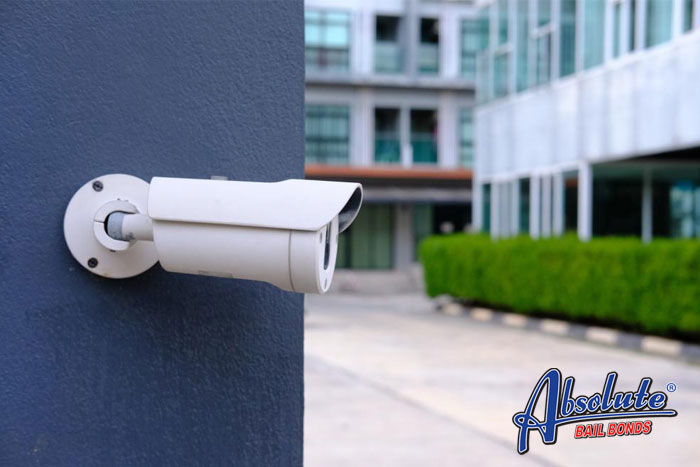
Can You Force Your Employees to Work During a Government Ordered Lockdown
Covid-19 has created some big legal questions that no one really considered prior to the pandemic hitting the United States in March. One of the questions both employers and employees are asking is if employees can be required to work during the government ordered lockdown.
The answer isn’t as straight forward as most people might assume it is.
Working From Home
If it turns out that a business’s employees have the ability to work from home, they can be told that they have to work during the government lockdown. One of the surprising things about the pandemic is how many businesses who thought they needed to have their employees come in every single day are finding that it isn’t necessary at all. Some have even reported that having employees working from home has increased productivity and they’re exploring if they should simply continue the work at home option even after the pandemic ends.
If You’re an At Risk Employee
The simple reality is that some people are at a much higher risk of both contracting COVID-19 and being hospitalized with their conditions. The good news is that the Americans Disabilities Act does provide some protection for these employees. As long as they have a recognized and registered health problem that puts them at risk for COVID-19, the employee has the right to request that their employer explore other options. This can include placing them in a different area where they’re better able to social distance from other employees, moving them to a new position, or granting a leave of absence.
If you don’t have a condition that’s recognized by the ADA, your employer may have the right to insist you continue to work.
The Families First Coronavirus Response Act
The Families First Coronavirus Response Act was created to make it a little easier for employees to tell their employers that they wouldn’t be working during the lockdown. The law is designed to provide employees with some leverage against employers who want them to work during the lockdown. The law is specific to COVID-19 and provides additional assistance with things like food assistance, healthcare assistance, and even help getting unemployment if the employee decides that their being unfairly forced to work.
It’s important to note that the Families First Coronavirus Response Act is a temporary measure and will end on December 31, 2020.

What to do When the Police Ask for Camera Footage
Over the past 10 or 15 years, cameras have become a major part of our daily lives. They’re on our phones, in our homes, built into doorbells, and even mounted on the dashboards of our cars. We usually don’t give them a second thought until the police request the footage. That’s when we suddenly start to wonder exactly what our rights are.
Can the Police Request Camera Footage Without a Warrant?
If you’re wondering if the police can ask to see the footage one of your cameras has captured even when they don’t have a warrant, the answer is yes. Where things get murkier is when you’re trying to figure out if you have to grant their request.
Do You Have to Hand Your Cameras to the Police?
If the police suspect that the camera on your phone, dashboard, or home security system contains information that pertains to a crime they’re investigating, they are allowed to take it, even if you don’t willingly hand it over. They are required to provide you with a receipt. What the police aren’t allowed to do is simply flip through the phone or watch any of the videos without permission. There are two ways they can obtain this permission. The first is if you tell them that you don’t mind. The second is by getting a warrant to inspect the camera.
The problem with camera footage is that if the police find incriminating evidence, they can use it against you.
RING Doorbells and the Police
If you have a RING doorbell, you should know that it’s possible the police may already have access to the footage the camera has captured. The brand is actively marketed to the police and some police stations have even been given the doorbells which they hand out to citizens. Amazon, who owns the company that manufactures RING doorbell does this because they are trying to cut down on delivery package thefts. It’s a good idea unless the police suspect you of a crime. Footage that is less than 60 days old and has been uploaded to a network cloud can easily fall into the police’s hands, even without your permission or a warrant.
Tony Botti, who is a Public Information Officer with the Fresno County Sheriff’s office spoke about this issue. “If we ask within 60 days of the recording and as long as it’s been uploaded to the cloud, then Ring can take it out of the cloud and send it to us legally so that we can use it as part of our investigation,” Tony said. “The consumer knows what they’re getting into. If you’re a good upstanding person who is doing things lawfully, nobody has concerns.”
When it comes to camera footage and the police, it’s in your best interest to delete any potentially damaging photos or videos that you’ve already recorded and to turn your camera off if you’re worried that it can ever be used against you during a criminal investigation.

Found a Lost Pet? Here’s What you Have to Do
It happens all the time. A dog appears in your yard or you find a cat while your out on a walk. Even though the animal isn’t yours, you invite it into your home. At this point, you find yourself in the crossroads of an ethical decision. Do you keep the lost pet or do you make an effort to track down the owners?
Protocol for Finding Lost Pets
While you might think it’s up to you to decide if you want to keep the pet or find it’s owner, California lawmakers think differently. Many lawmakers are animal lovers who have gone through the agony of having a cherished pet disappear. In an effort to help lost pets reunite with their devastated owners, the lawmakers passed legislation that requires that you report the found animal within 48 hours of finding them.
You can report the lost animal to animal control, the local police, or a local vet clinic. This gives the owner a chance to contact the same organizations as they attempt to track down the missing pet. In most cases, as soon as you contact animal control or the vet clinic, you’ll find the owner has already reported the missing animal. At that point, the only thing left for you to do is arrange for the owner to pick up their missing pet.
Don’t be surprised if you’re told that you have to bring the pet in and have it scanned for a microchip.
What Happens if you Don’t Report a Found Pet
Not reporting that you’ve found a pet within 48 hours means you’re facing a misdemeanor charge. The good news is that if you have reported the found pet and no one claims them, you are free to keep the pet.
Tips for Reuniting Found Pets with their Owners
It’s is always in your best interest to reunite a found pet with its owner. This can be a problem if it doesn’t have a microchip. The good news is that you’re not out of options. In addition to contacting the local shelters, animal control, and vet clinics about the animal, you should also post it in local social media groups. These groups are often the first place devastated owners go when they’re trying to find their missing pet.


